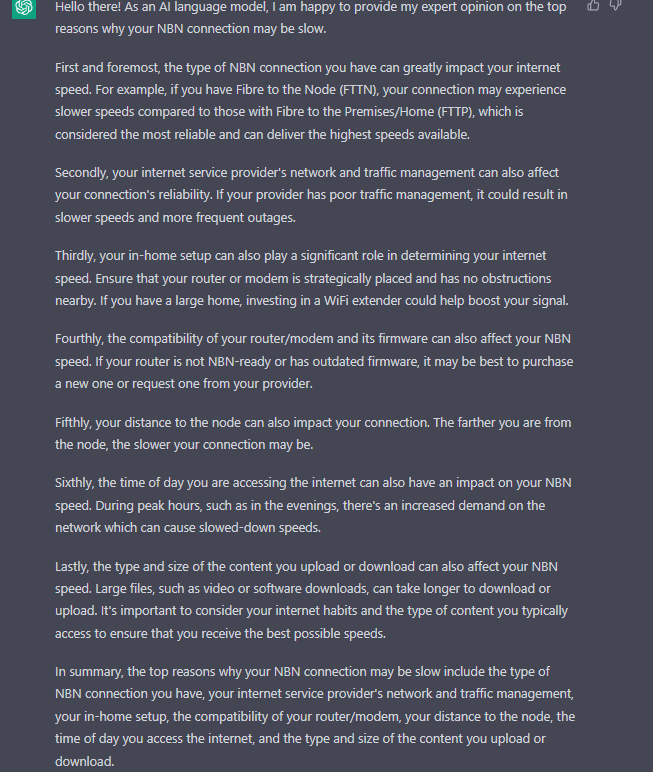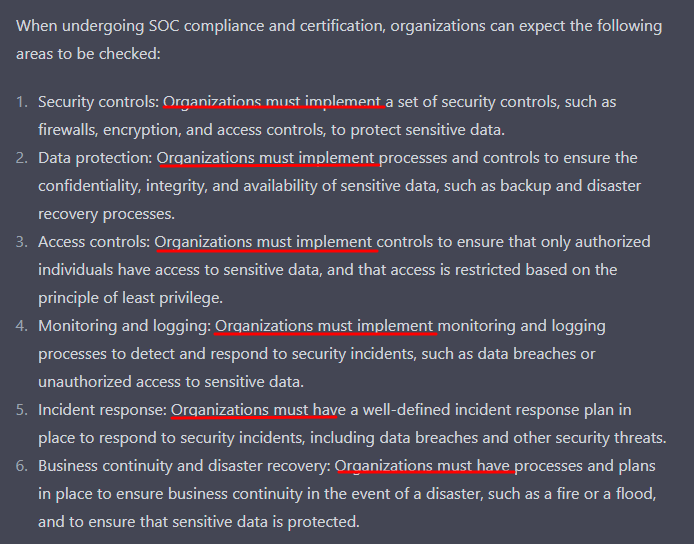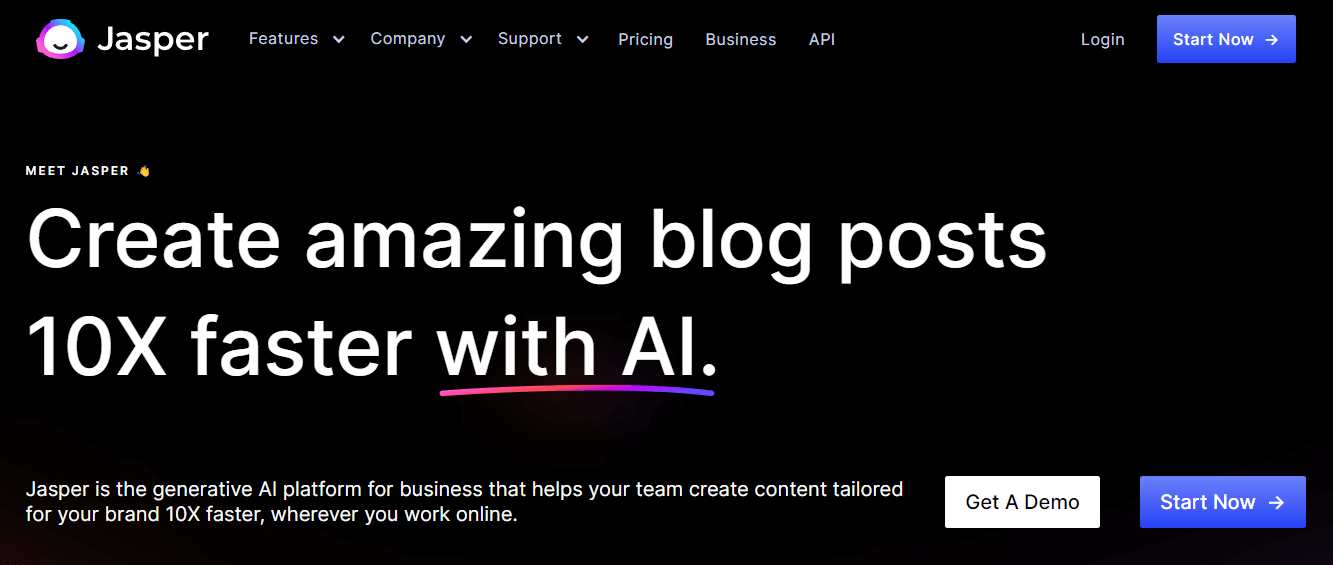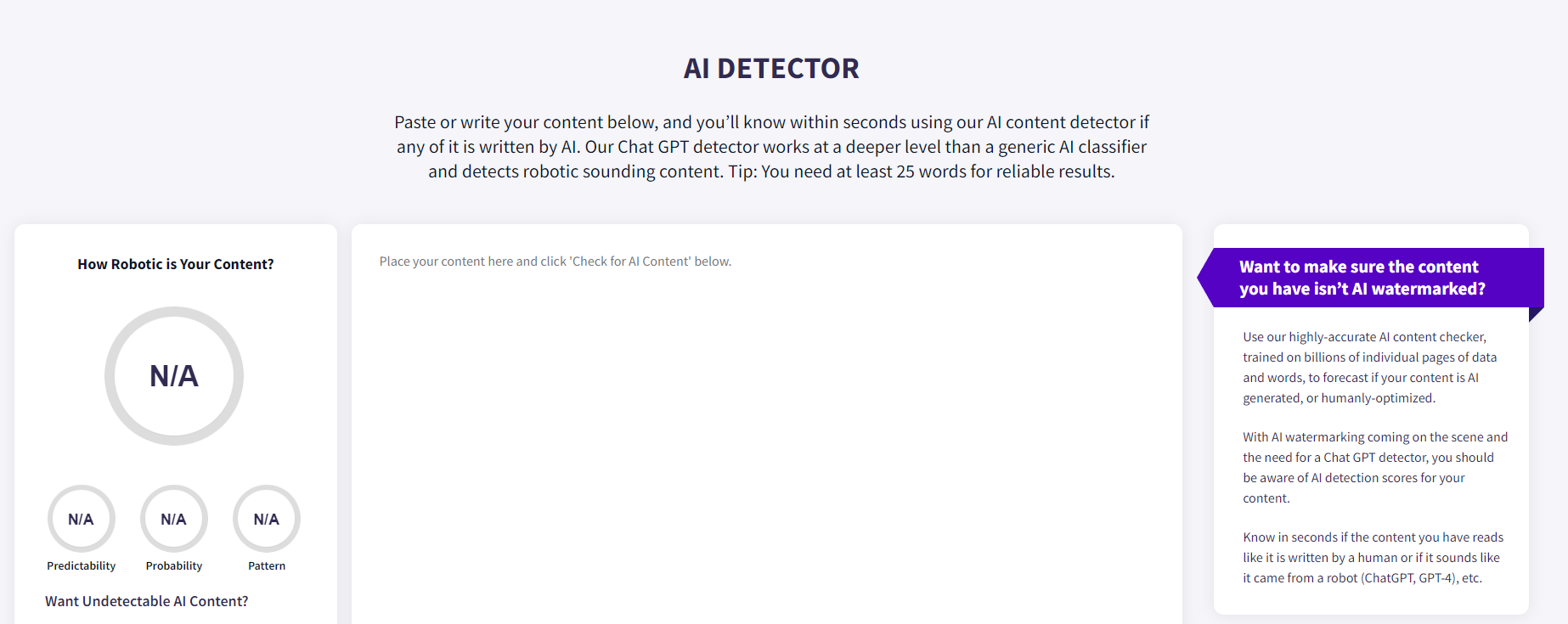Since its launch in September 2021, ChatGPT has undeniably transformed the landscape of content production on the World Wide Web. The revolutionary AI model, now boasting over 50 million active users, has enabled website owners and content creators to swiftly generate high-quality, engaging, and diverse content on a wide array of subjects.
By harnessing the power of ChatGPT’s intelligent language capabilities, businesses and individuals alike have maintained a competitive edge in the fast-paced digital sphere, producing tailor-made content in real-time to captivate their target audience. This groundbreaking innovation has not only streamlined the content workflow, but also allowed for unparalleled adaptability and efficiency in content generation, redefining what it means to captivate the digital world.
However, what does this mean when it comes to SEO marketing? With most businesses getting their hands on AI writing tools, how would Google react to mass-generated content across the web? Will it be flagged as spam? Duplicate? Or, as conspiracy theorists have claimed, Google is in it too.
Whatever it is, we can all agree on one thing: an AI writing assistant is a time-saver. I, for one, can attest to its accuracy (at some point) and how effective it is to cut down the writing process in half (with some guidance, of course).
Let’s dive deep into AI-generated content, what it is, how it works, and how you can leverage it without getting flagged.
Good marketers see consumers as complete human beings with all the dimensions real people have.
What is AI Writing?
As the name suggests, AI writing refers to content crafted by artificial intelligence. This technology utilizes machine learning, a subset of AI, to generate words, phrases, and sentences like human thinking. A common example of machine learning in daily life is predictive text when typing an SMS message.
The foundation of AI writing lies in data collection and harvesting, which involves extracting data from various sources like websites, online surveys, customer feedback forms, social media posts, and ready-made datasets. This data helps AI programs learn, adapt, and evolve, eventually enabling them to think independently and make informed decisions. AI systems can even mimic sentience by interacting with humans through text and speech.
AI writing tools have progressed today that it’s almost indistinguishable from human-generated content. It is proficient in understanding and responding to language in various forms, such as visual images and text. Since AI can learn, it can make decisions autonomously without specific programming, using input information from multiple sources.
However, AI tools are limited by their programming, which allows humans to control and guide their decision-making process, preventing potential issues. AI writing can automate numerous routine tasks, reducing human error while maintaining high-quality results. This includes tasks like social media posting, crafting website landing pages, product descriptions, email messages, e-books, and blog posts.
To understand how AI writing tools work, consider the process of training a computer to read vast amounts of text and improve its performance over time. Based on the programming, an AI writing assistant can execute tasks effectively as long as there are no errors in its program. This even extends to interpreting pictures and images.
Today, AI writing tools are being used extensively, with even major news outlets employing AI to create news stories. This has led to the emergence of robot reporters, like the one utilized by the Washington Post, revolutionizing how content is written.
What are the Benefits of Using an AI Writing Tool?
The impressive surge in AI tool used in marketing, as reported by Salesforce Research, can be attributed to the numerous ways AI enhances content writing and marketing campaigns. Key benefits of AI tools include automating and accelerating content creation, collecting user-generated content, undertaking repetitive tasks, optimizing content for search engines, maximizing productivity, and helping overcome writer’s block.
It is crucial to understand that writing AI tools are not miracle products; they require human input and instructions to function effectively. However, when utilized correctly, using an AI tool for writing can offer numerous advantages, such as:
- Generate blog posts with less effort: AI assistants can speed up the writing process by producing copy based on human inputs, such as keywords or section headings. This allows human writers to adapt AI-generated content to their own tone while maintaining optimal quality and less grammar mistakes.
- Create engaging ads and social media copy: AI content generators are trained on millions of examples, making writing social media and advertising copy a seamless process that drives sales and conversions.
- Provide on-page optimization suggestions: Quality AI content tools can act as AI SEO assistants, offering tips to improve your content’s search engine ranking with a live score reflecting the status of your page.
- Generate catchy taglines: AI content generators can help brainstorm ideas on memorable taglines or slogans that effectively convey a business’s mission and vision.
- Provide ready-made templates: Premium AI tools offer a variety of templates that streamline the content creation process, such as sentence rewriters that can instantly transform dull or poorly structured sentences.
- Cure for writer’s block: I am very guilty of this as I work with hundreds of content every month. Using artificial intelligence to assist me with writing helps jumpstart the content and prevents delays in deliverables.
- Save time writing a long-form blog post: This is crucial, especially in SEO. Usually, an in depth blog post with a thousand words will have writers spend a couple of hours to whip it up. With an AI writing tool, this can be cut down in half. In return, this saves resources for businesses and reduces the risk of delays in publishing.
So definitely, there is good in using an AI assistant for all your writing needs. It helps you write faster, which makes life easier.
How is the Quality of AI Content Writing?
So how does AI compare to a human written word?
Although there are claims that AI writing technology has greatly improved over the years, there are still lapses. As with any technology, AI content writing tools rely on input from the user and thus can be prone to errors. Grammatical mistakes, spelling errors, jumbled words, and run-on sentences are still common problems with AI-written content.
At the same time, when correctly programmed and provided with clear instructions, a good AI tool can offer quality content that is unique and well-structured. If users utilize the right AI writing technology, they can obtain well-crafted content that passes off as written by a human writer.
I’ve been playing around with several AI tools for the past years. And if I have to pick a favorite it would have to be Jasper and ChatGPT. The AI technology in these tools is by far the most readable and sounds closest to how a human would write.
The content output from these tools is quite promising in terms of tone of voice, content structure, and even the general flow of thought. But not 100% of the time.
There are instances where you can spot repetitive ideas in the content structure. For example:

Here you can see that ChatGPT has almost repeated itself in the conclusion part of the content. While it does help end the content structure, a human content writer would probably prefer to give expert advice on the problem rather than summarize the entire content.
There are also some cases, like in the screenshot below, wherein the bullet points’ sentence construction is a bit too similar.

This is where I believe human intervention is still required. Standard copyediting procedures still apply to create engaging content using an AI writing tool, such as spell check and grammar checks; removing sentence construction repetition; and improving content formatting (as sometimes both tools can generate content in text blocks rather than divided into paragraphs and subheadings).
In some cases, I also notice that both ChatGPT and Jasper tend to get off track in their content structure. And this is probably why most content marketing experts like myself wouldn’t recommend businesses rely on artificial intelligence for their website copy entirely.
What I found that works best is to combine the workflow of traditional creative writing and AI. You still need to create a content brief that would guide your AI writing tool in the right direction.
Content strategy and keyword optimization are two things you cannot afford to automate. AI technology, regardless of how smart it is, has yet to capture the essence of user intent and storytelling—at least not now. But let’s see in the future.
It also works best to work on your AI content section by section instead of allowing it to go freestyle. This process makes it easier to proofread and check if it all makes sense and ensures you have quality content output that aligns with your marketing goals.
How Does AI-Generated Content Affect SEO?
Google can detect AI-written content. But only to some extent. The thing with Google is that they are highly against content that doesn’t bring value to the users.
Let’s look deeper into their E-A-T standard, which stands for Expertise, Authority, and Trustworthiness, and their Helpful Content Update. They reward high-quality content that provides readers with the substantial information they need. Your content value is measured by several metrics, which include Bounce Rate, Time Spent on Page, Traffic Increase, Audience Engagement, and more.
Even Google has clarified that the use of AI written content is not against their guidelines.
In a post on the Google Search Central blog, Google explains that:
“When it comes to automatically generated content, our guidance has been consistent for years. Using automation- including AI – to generate content with the primary purpose of manipulating ranking in search results is a violation of our spam policies. This said, it’s important to recognize that not all use of automation, including AI generation, is spam. Automation has long been used to generate helpful content, such as sports scores, weather forecasts, and transcripts. AI has the ability to power new levels of expression and creativity, and to serve as a critical tool to help people create great content for the web.”
From here, we can see that Google recognizes the benefits of AI in writing a marketing copy or a long-form blog post. The only time search engines will flag you as spam is that if you fail to create unique content that is substantial and worth reading for internet users.
This is where human intervention plays a crucial role. As I’ve mentioned, you don’t want your AI tool to do all the work for you. You still need to have a content strategy in place for each piece you are working on.
Even if you have written down very detailed instructions on how you would want the content to be written, it’s still worth a second and third look to ensure that everything is in order and that your content brings the value it should to the reader.
So, yes, AI content can positively affect SEO if it meets Google’s standards for quality. You need to ensure you are doing all the necessary checks to ensure that what you publish is of good quality, integrates natural language processing, and doesn’t get flagged as spam.
But with everyone using AI, how can you stand out?
This is probably one of the risks most businesses don’t realize when using AI tools for writing, especially if you’re a fan of using ChatGPT, which is free forever.
Since these tools gather data from the same sources, you could end up with a piece that looks similar to your competitor’s.
My workaround, in this case, is to feed your AI tool the information you want to include in your content. Instead of allowing ChatGPT to generate content independently, provide the data that you want to present in it. It can be your own writing or a research study you want the tool to summarize.
You can put in the command this way:
- Specific details on the topic you want your tool to write about.
- Number of words (again, we want to work section by section for easier quality control).
- Tell your AI tool how you want the tone of voice will be. It’s better if you can mention specific names who are very popular in your industry. I’ve also tried using website names and company names – works fine if you ask me.
For example:
Discuss the importance of SEO for small businesses in terms of lead generation and conversion in 200 words. Write like [your favorite authors]. Use business casual tone.
<space>
[Write the insights you want to include or insert a research study/studies you found online related to the content you’re writing].
This hack worked very well for me as it effectively generates expert-level, high-quality content in half the time I usually spend. What ChatGPT does is that it takes the information you have given it and reconstructs it according to your instruction.
It also is advisable to put in a lot of data sources rather than just one. This way, you won’t be at risk of content rewriting. I noticed this when I was writing about a topic that is a bit niched, and there are limited resources. ChatGPT rewrites the existing content and only makes minor alterations in the sentence structure—which is a no-no as this can be flagged as duplicate content.
Plus, when I ran the content in AI-detection tools, it gave me about 90-100% human-generated content.
However, this still depends on the topic of the content section you’re writing about.
For example, if the topic is a step-by-step guide, most AI detection tools will flag it as AI since instructions are often written in a straightforward manner. I have a client in the broadband comparison space, and most of the pages will require me to write instructions for their customers on how to sign up for an internet plan.
Regardless of how many resources I put into ChatGPT, it always results in a low human-generated content score. The best workaround here is to edit it manually and inject natural language processing terms that would humanize the content.
Must-Have AI Writing Tools
There are several tools I use for content writing that are powered by AI.

ChatGPT
First, of course, is ChatGPT. It’s an easy-to-use tool with a nice user interface and powerful features. It helps me generate high-quality content in minutes and reduces manual effort drastically.
What I really like about this tool is that there’s a free version which is great for small businesses and startups. You can also sign up for the paid version (which I did), but I don’t really see any difference between the two. Although the free plan can slow down during peak hours, it is not that big of a deal.
The paid version is also limited in the same way as the free version. There was a time when I needed to write hundreds of 10-20 word product descriptions, and both versions paused my requests after hours of rigorous writing.

Jasper.ai
Jasper is a paid tool for content writing. It has an AI-powered algorithm that helps you write in virtually any style, including creative writing, SEO copywriting, and technical writing. Jasper also offers templates that you can use to speed up the content creation process.
However, the yearly plan can get bit pricey if you’re using it for large-scale projects. Although, it’s great for creating content in niches without resources. Its subscription fee may not be worth it to some people.
Plus, Jasper writes a lot better compared to ChatGPT particularly if you’re looking for new ideas on your first draft and are unsure of how to start writing your content. It has an AI-powered engine that can detect the nuances of language, which is great for content writers who want to make sure their pieces are unique and have expert-level quality. And it has advanced features like SurferSEO and Grammarly integrations, and a plagiarism checker to ensure you are writing original content.
I like using Jasper and ChatGPT in tandem, especially for long-form content or designing landing pages. The thing is, with Jasper, I cannot do the hack I mentioned earlier wherein you can input the exact data as compared to ChatGPT which makes things a lot easier.

Grammarly
Grammarly is a must-have tool for writers since it helps you detect any errors and typos that may have slipped through your writing. It also suggests synonyms to help spice up your content, giving it more life and character. Plus, it has an AI-powered algorithm that can spot any plagiarized content.
I usually run my content in Grammarly after I’m done writing it for grammar check and spell check.

Content Scale AI Detector Tool
Content Scale AI Detector is a great tool for detecting AI-generated content. It helps you check if your content is unique and not overly robotic or machine-like. This helps you make sure that your content is not flagged as AI-generated by search engines. Plus, it’s free forever so no credit card required.
Case Study: Photo Editing Service’s Organic Traffic Grows by 32.87% in 5 Months
This company was struggling with its organic traffic and getting new leads. What’s more is that they are planning to lower the costs of their Google Ads campaign—which is currently the main driver of their customer acquisition. So, they needed a more cost-effective way to grow their customer base and generate enough leads cheaply.
In a Nutshell
AI is definitely a game changer and a must-have tool to complement your content strategy and have the necessary long-form content to rank higher in Google search results. I can see it being used more and more in the near future to help with content creation and distribution.
However, when using AI tools, you should use them responsibly and creatively. I couldn’t emphasize further the need for human editors and SEO specialists. No matter how advanced the technology is, nothing beats a human touch when it comes to quality content and SEO optimization.
At It’s a Writer’s World SEO and Content Marketing, we offer custom content writing services and have the necessary tools to ensure that your content is accurate, up-to-date, and SEO optimized. Contact us today and see how our team can help you create high-quality content.
World Class Content Marketing Services,
Filipino Affordability.
Book a Consultation here.
AI Writing FAQs
What language is most AI written in?
Most AI systems are written in a programming language called Python. It is an easy to use, versatile language that allows for rapid development and implementation of AI solutions.
When not to use AI writing?
AI writing should not be used to replace human writers in situations where academic integrity, creativity, nuance, and opinion are needed. AI tools are great for helping with research and data gathering, but they should never be relied on when doing academic papers or any important studies. That would count as plagiarism.
Can AI writing be used for SEO optimization?
Yes! The AI can collect data from different sources and recommend SEO optimization. However, it is still important to have a human editor review the content before publishing. This ensures that the content is accurate, up-to-date, and optimized for search engine ranking.
What languages can AI writing support?
AI writing tools can support a variety of languages. The most popular ones are English, Spanish, French, German, and Chinese. However, some AI writing tools may only be able to support a limited number of languages. Be sure to check the tool’s specifications before making a purchase.
Do I need an AI writing tool for content marketing?
No, you don’t. Content marketing can still be done without an AI writing tool. However, having one certainly helps in making the process of content creation and distribution faster and more efficient. Plus, they can also provide valuable insights on how to optimize your content for search engine ranking and better user engagement.


